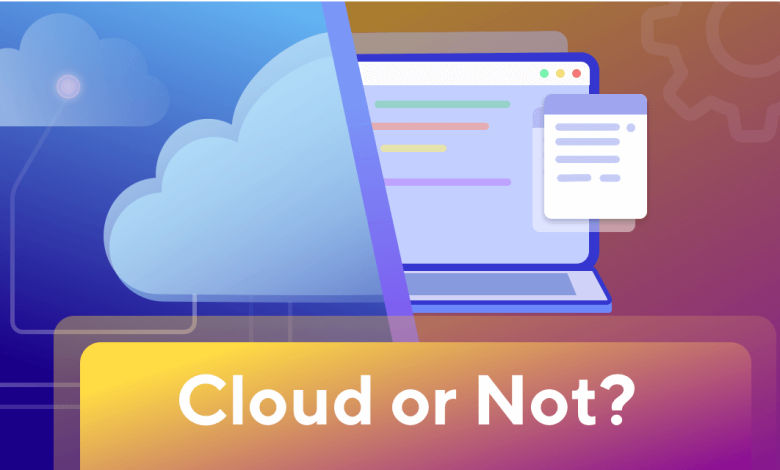Mobile Cloud Testing-What and How

Last Updated on February 16, 2024 by Ali Hamza
It is unthinkable for anyone to think of a world without mobile applications. Businesses and individuals today depend on mobile apps for everything, whether it is scheduling meetings, making payments, getting information, or making purchases. The significance of mobile apps in our lives can be gauged from the fact that the average time spent on mobile apps by people will soon reach 4 hours and 39 minutes by 2024.
Since users quickly reject any app that does not meet their expectations, software developers must ensure that every app’s functionality and usability are top-notch. Every mobile app needs to undergo rigorous testing to ensure it is perfect and error-free. Most organizations today prefer to test mobile applications using an online cloud platform, which is much more efficient than traditional on-premise testing processes.
But what about mobile cloud testing makes it so appealing to software developers worldwide? In this article, let us try to understand everything about mobile cloud testing and try to find the answers.
What is mobile cloud testing?
In simple terms, mobile cloud testing is when teams test mobile apps using online cloud platforms instead of testing them on-premise. Testing mobile applications on the cloud provides more options and increases the flexibility for testers to conduct their mobile testing.
A cloud-based mobile testing infrastructure hosts actual mobile devices or emulators, and testers can access them anytime to test their mobile applications.
Benefits of mobile cloud testing
Mobile cloud testing offers priceless advantages to QA teams and software companies that can provide them with a competitive edge in the market.
Here they are:
- Easy access
With a mobile cloud testing infrastructure, testers can access many devices, OS platforms, and versions, irrespective of the local devices they may be using. Mobile testing platforms are available for testing anywhere and anytime, which is a significant advantage.
- Greater scalability
QA teams can simultaneously test their mobile apps on several devices without fear of diluting the testing quality. It is because a cloud server can hold an enormous amount of data at a time.
- Cost savings
Most cloud-based testing services charge on a pay-per-use basis, with service charges reasonable compared to the services provided.
These are the instances where you save money while performing mobile cloud testing:
- You do not need to acquire any physical devices
- Maintenance costs are taken care of by your service provider
- You need not incur licensing costs, as they are borne by the provider
- No extra space is required for setting up your lab
- All third-party installations are managed by the provider
- Agreements, security measures, and policies are maintained by the provider
- You need not set up the cloud or network
- Identify critical bugs faster
Mobile cloud testing is more efficient than on-premise testing. It lets you unearth bugs and errors in even the most complex applications and resolve them before they escalate into bigger problems.
- Enables faster software releases
Since QA teams can perform thousands of tests across multiple devices and platforms simultaneously, the testing process is greatly accelerated. As a result, it allows developers to deliver error-free, perfect software faster to the end users.
- Better collaboration across teams
Mobile cloud testing lets any member of the QA or developer team access files from any location and on any device, allowing them to collaborate more effectively. This facilitates more transparency in project management.
Why do enterprises need mobile cloud testing?
For any business to maintain its credibility in the market, it must ensure that the software it delivers under its brand is flawless and provides an excellent user experience. Most enterprise-level applications are complex and require continuous testing to ensure they are flawless.
To ensure this, QA teams need a dedicated test infrastructure that facilitates them to perform comprehensive testing whenever needed. Using a cloud-based testing platform for testing mobile applications makes practical sense since it allows teams, whatever their size, to test their applications across a range of devices from a single test plan.
Integrating mobile cloud testing into your project
Here are some pointers to get started with mobile cloud testing and derive maximum benefits from it:
- Incorporate a combination of real devices, emulators, and simulators to enhance the coverage of your mobile app tests.
- To get more value out of your mobile cloud testing, run as many tests as you can together. This approach, known as parallel testing, significantly accelerates the testing process by letting you run unlimited tests simultaneously.
- Determine the mobile test environments that are most significant for your market. It is not prudent to test your apps on every type of hardware and software environment. Instead, you must plan and decide which environments are most relevant for your customers.
Summing up
Organizations must incorporate mobile cloud testing into their development pipelines to leverage all its advantages and gain a strong foothold in the competitive software market. With a mobile cloud testing infrastructure, you derive a lot of flexibility with all your data in one place, with only a reliable internet connection to access it.
When it comes to mobile cloud testing platforms, for most organizations, it is TestGrid that is the preferred solution because of its powerful features and capabilities. The codeless testing platform lets you automate all your mobile tests with just a few mouse clicks. Moreover, with TestGrid, you can analyze even highly complex features of any mobile app, whether Android, iOS, or Windows-based.
Rewriting the same test cases multiple times whenever you need to test a new software can be tedious, but with TestGrid’s mobile automation testing, QA teams can save and reuse almost all the tests on different app versions and even other apps. With TestGrid, you can run any number of tests whenever you want just by logging in to a cloud server from wherever you are. Perform API testing, and cross-browser testing, get valuable performance metrics and rich analytics all in one place with TestGrid without installing third-party applications.


